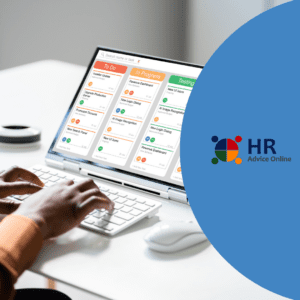Workplace stress and fatigue continue to be a concern for many employers due to the impact on productivity and absenteeism.
The good news is there are steps you can take to manage stress and fatigue in your workplace. Reducing workplace stressors and providing flexibility and support can help promote workplace wellbeing and reduce stress. There are various types of fatigue including mental, physical and emotional fatigue. There is also fatigue associated with shift work and travel that could affect your employees.
- Physical fatigue can lead to muscle aches, pains, injuries and accidents.
- Mental fatigue can leave you and your employees feeling exhausted which can impact their judgement and concentration.
- Emotional fatigue can leave employees feeling irritable, stressed and uncomfortable, as can fatigue from shift work and travelling.
When someone is feeling tired and exhausted, suffering from the effects of fatigue, it can make the smallest tasks seem difficult or unbearable, much like being unwell. Environmental factors can play a significant role in managing stress and fatigue in the workplace.
Bullying and harassment can cause significant stress for an employee or group of employees. The effects on employee mental health can be significant and attributed to increased anxiety and a feeling of being unsafe at work. Bullying and harassment can lead to significant emotional fatigue. Taking a zero-tolerance approach to bullying and harassment in your workplace can go a long way to helping your employees feel safe at work.
Significant workloads also play a part in the wellbeing of your employees. Check in with your employees to gauge how they are managing their workload and to identify any areas where they are struggling or might require additional support. Busy periods may be inevitable, however it is how we manage through those times. When an employee says they are struggling or this is identified, make sure you take steps to support the employee and involve them in the process. This promotes trust in the working relationship and provides assurance to the employee.
Providing autonomy and flexibility in the workplace can allow your employee to manage their own workload in a way that works for them and best manages their stress level. A good work-life balance promotes wellbeing and in turn allows the employee to be empowered and invested in the work being undertaken and driven towards achieving the business outcomes along with job satisfaction.
In managing workplace stress and fatigue, consider some of the following:
- Identify and understand the root cause of stressors in your workplace, check in with your employees, or even do a quick pulse survey to identify key areas of focus.
- Promote a flexible working culture with a focus on establishing work-life balance. Flexibility can look different for each workplace depending on the business needs.
- Wellbeing leave can be offered as an additional incentive or benefit in addition to statutory entitlements.
- Promote safe, open communication and encourage staff to speak up when they are struggling.
- Provide relatable and practical resources in managing stress and fatigue and support such as access to counselling, education and employee assistance programs.
- Encourage your managers to lead by example and model expected behaviours, push back on workloads that are unmanageable and maintain a zero tolerance of bullying and harassment in the workplace.
Having difficulty understanding and supporting your staff? Speak with our team for ideas to support your workplace health and wellbeing, please contact us at [email protected] or 1300 720 004.
Information in HR Advice Online guides and blog posts is meant purely for educational discussion of human resources issues. It contains only general information about human resources matters and due to factors, such as government legislation changes, may not be up to date at the time of reading. It is not legal advice and should not be treated as such.




